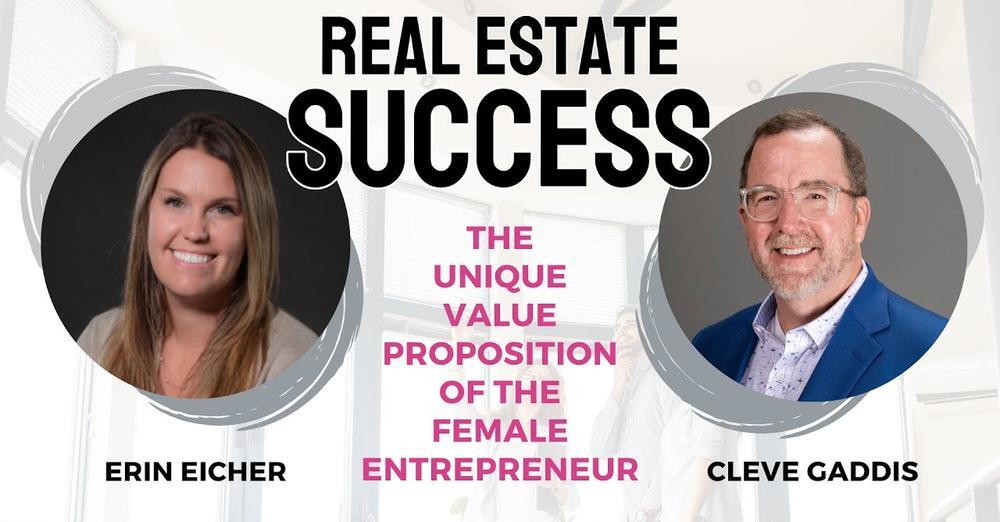In the world of real estate, women bring a unique perspective that is often underestimated, both by their male counterparts and by themselves. Erin Eicher, an accomplished Broker/Owner of Colorado Property Group at RE/MAX Pinnacle in Durango, Colorado, sheds light on the unique value proposition of female real estate brokers, agents, and overall entrepreneurs, emphasizing the importance of trust and collaboration. Through her insights gained in her career in real estate and banking, she emphasizes the transformative power of embracing struggles, taking chances, and leveraging specialization.
Where are the Women Leaders in Real Estate?
According to the National Association of Realtors (NAR), 60% of licensed real estate professionals in the United States are women. “I don’t think that comes as a big surprise to anyone, but what is surprising is that in our executive-level roles, only 14% of those in real estate are held by women,” Erin explained. “That’s a 46% gap which suggests we need to have three times as many women in leadership roles as we currently do to create a place where we’re compassionately and confidently representing each other.”
While there is a myriad of reasons why women are not in leadership positions in real estate, there are also actions women can take today to become leaders. To achieve brave results, you need to take brave action. That often means challenging “impostor syndrome” as a necessary step. “The reality is if you look back and challenge yourself to be more of an ‘impostor,’ you will see exponential growth in your leadership skills, in the people around you, in your team and, ultimately, in your business.”
Turning Challenges into Opportunities
While many view challenges as inherently negative, Erin encourages women to see them as opportunities. “We need to leverage our struggles and not feel like they put us at a disadvantage but can be opportunities to contribute more,” said Erin.
Sometimes struggles and difficulties in getting ahead in real estate can come from not understanding what you value both professionally and personally. True professional success can only be achieved if you clearly know what your values are and how you are going to show up every day living them. “I think it’s interesting when you look at your professional authentic self and what you value and how that plays into how you show up professionally,” said Erin. “I challenge women business leaders to reflect on the alignment of your personal and professional values because it is extremely hard to show up professionally and show your values if they do not tie in with what you personally value as well.”
Defining values for your business is also imperative to success and leadership growth . Erin and her business partner, Ryan Poppe, developed four core values for their company — collaboration, contribution, accountability, and innovation. Each of these values drives decision-making and even the utilization of technology. “For example, Ryan and I knew that innovation had to be one of our values because if we just showed up and did the same thing every single day for the next 10 years, neither of us were going to be fulfilled. That commitment to innovation has translated into our review of our technology stack on a regular basis and not to be afraid to change if a new technology is right for the business at that time. For women, you need to ask yourself are these core values ones I’m willing to hold myself accountable to as a leader? And you must be comfortable and clear in communicating them to your team to ensure they can embrace them and be on board.”
Embracing Your Superpowers
Due to their nurturing instincts, delegation hinders many women instead of being a tool for success. For Erin, she learned to shift her leadership approach, moving from micromanagement to a more empowering style that encourages team members to learn from mistakes. Taking this action fosters a culture of accountability while respecting individual strengths and developing growth through delegation. Erin focuses on building individual strengths within her team, allowing for specialization while maintaining a supportive environment to achieve collective success.
ROI or ROH?
You may be asking yourself, if I make these changes, if I’m brave to take a risk on my leadership journey, what’s my return on investment? Erin says that your ROI can be seen in the concept of Return on Happiness (ROH). “I’ve worked with one woman for a long time, and she always says your job’s not going to pick your nursing home,” Erin shared. “I think that’s so important because the happiness you get is what is going to make life worth living. You have to pay attention to ask yourself, ‘What is my return on happiness on what I’m doing?’ This action will trickle down and benefit your staff, your agents, your peers, your family and, most importantly, yourself.”

